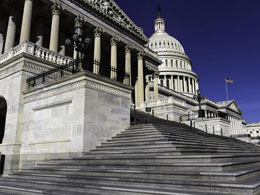
Digital Currencies, Regulatory Enforcement Actions, FATCA and Cyber Fraud to be covered in Financial Crime and Anti Money Laundering Conference
FIBA, a non for profit trade association whose membership includes some of the largest financial institutions in the world who are active in international banking, will be holding its 14 Annual Anti Money Laundering Compliance Conference on February 20-21, 2014 in Miami.
FIBA’s AML conference agenda will include a range of panels that will examine topics of great concern to anti-money laundering compliance officers, regulators, lawyers, accountants and others.
1300 participants - 110 speakers - 25 sessions
Keynote speaker February 20: Jennifer Shasky, Director, FinCEN
Keynote speaker February 21: Barbara Hammerle, Deputy Director, OFAC
WHEN: Thursday, February 20 and Friday, February 21, 2014
WHAT: 14th Annual FIBA Anti Money Laundering Conference
WHERE: Intercontinental Hotel Miami – 100 Chopin Plaza, Miami, FL
WHO: Organized by FIBA – Florida International Bankers Association
Additional topics to be covered include:
- The money laundering potential of Bitcoin and other digital currencies has attracted a lot of media attention in recent months. While the growth of such technology is worthy of examination, such innovation is by no means the sole, or even the most pressing, anti-money laundering issue faced by international banks today.
- Regulatory enforcement actions that in recent years have cited due diligence failures at banks engaged in international correspondent banking activity. Banks must figure out how to strike a proper balance and get to know their customers, and their customers' customers, without the wasted expense of unwarranted measures.
- The evolution of cyber fraud from a mere intrusion threat to a much more sinister menace that looms over banks and their customers' assets will be examined, as will the nexus between cyber fraud and anti-money laundering.
- As banks adapt to a world where combating money laundering is of growing importance across multiple jurisdictions, banks must maintain a keen awareness of regulatory requirements in multiple jurisdictions. Only then can they achieve a truly enterprise-wide AML program that is both globally coherent and locally compliant.
Details: http://www.antimoneylaundering-fiba.com/
Related News





